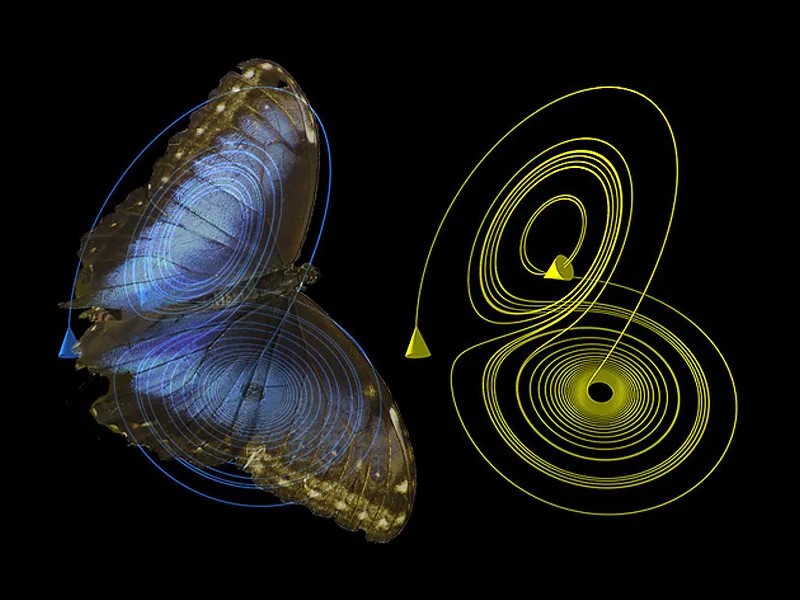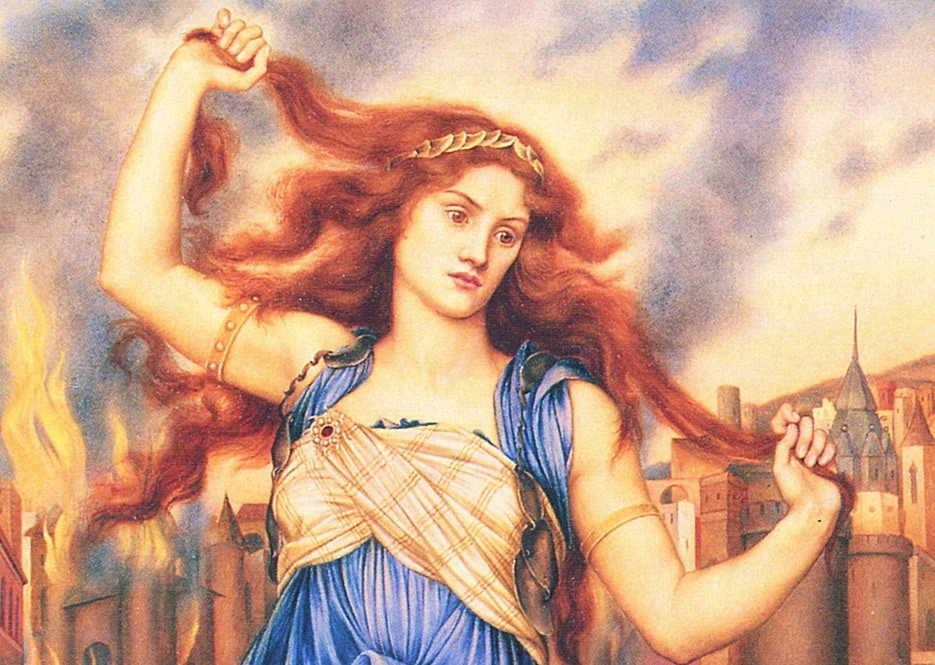This creative writing piece reimagines the story of Cassandra, the Trojan princess cursed by Apollo to see the future but never be believed. While it’s not an analytical piece like my usual work, I thought it would be interesting to share something different that still connects to the themes of oppression discussed in my previous blog posts. This narrative offers a creative take on mythology, tying into my coursework while exploring Cassandra’s tragic fate in what- I hope- is a vivid and immersive way.
Time speaks to me.
He prances around my head, from ear to ear, cackling wickedly at the sinister horrors he whispers to me. As he ruptures a hole in mind he begins to peel away at the layers of my mind, stripping my mind bare from any memories I have and in change of this, he starts to re-write them through songs and wretched tales of the future. The prophecies he sings me compose a cacophony of jarring images that haunt and torture me; the resonant lullaby plaguing my mind with visions of draughty lands and bloodied battles; a motionless slaughter yard filled with the plummeted bodies of my beloved and the tragic fate of my city as its very history erupts into flames…
A scar of bright and blazing light hangs in the twilight sky. The sparks and fiery embers of this violent and whirling inferno rain down on Troy’s palaces, setting the homes of innocent people ablaze as every tiny cinder falls and sets each fibre of wood on fire, one after another – a domino bringing this miserable city to the ground. Meanwhile, in the palace of Priam, the cries of the dying and the crackling of the fires outside wake up Hecuba from her slumber in a fright; jolting from her bed and running to her daughter’s rooms in her silk gown, she screams for Priam’s arms and comfort.
“Priam! Oh daughters, wake up! Cassandra! Creusa! Polyxena!”
And I see myself emerge from the marble archway by the stairs.
Cognisant.
Lifeless.
No fear in those insipid, brown eyes.
For Time has already told me of this story; he has already traced my skin with fire’s soft breath a thousand times before; he has already sung these silent stardust words and replayed them in my mind.
“Troy has been breached,” she cries.
“I know.” I laugh monotonously and walk to the balcony to view the atrocity for my own eyes.
Where once was the smell of fresh bread and regular drafts of salty air from the sea, there is now only carious bones and soot. From here, the thick haze of ash blanketing the city is the only thing you can see for miles, apart from the fierce onslaught occurring around the core of this battle: the wooden horse.
Through the thick, charcoal smog, which now infiltrates almost every corner of the city, they stood. Men clad in armour and spears, pouring out from a secret hatch in the horse and raging against men dressed solely in tunics. They breathed the wrath of fight and through bloodlust and recklessness, they penetrated our buildings. Our people awoke to the sound of chaos and war. The unexpected breach meant our warriors had no time to put on any protection and only had the opportunity to get any weapons within sight. Though even whilst our people charged at the foe with all their life’s strength, without the luxury of preparation, the Greeks cut them down as if they were merely stalks of wheat in a field; feeble, powerless, pathetic. Troy’s men were quelled by a bitter death and their blood ran in torrents, drenching the soil under their lifeless bodies; regular civilians who rushed to fight for their city, rested now in dust, still clutching at the spilling organs that hung out tremendous gashes; the shrieking of terror the women let out in their homes set them running out in a mad frenzy to aid the perishing, their husbands, and their children. And no Trojan, on that field of blood-stained grass, was woundless.
My mother suddenly grips my wrist which rests on the balcony ledge, coughing through the dense air as she begins to drag me inside towards my sisters. She ushers us over to her and tells us that she’s going to take us to an ancient laurel tree hidden in the depths of the royal palace in hopes of finding refuge. So, we do, and we stay there, pressed together within the shrubby leaves, praying to the gods for our safety. Our mother, however, grew timeworn and fidgety with nerves for the safety of her husband. This is when the fates of the princesses of Troy twisted, and the songs of Time sung a different melody.
We remained beneath that laurel tree for hours on end, listening to the clanking of metal as sword met sword, breathing raggedly through the fumes, and tasting the metallic tang of drying blood on our tongues, until the Greeks found us and captured us with bloodied cloths. I was the last of my sisters to be gagged and I put up no fight; I had already seen our wretched fates and no effort of mine would avail in avoiding them.
So, for once in my life since the curse was brought upon me by Apollo, I needn’t tell the women of their destinies. They were already written in stone, decided far away from where we stood now in the midst of the Greeks, and no prophet was needed to understand what was to happen to us; we were to be spared from death, but not from the maniacal men of the Hellenic army. Chosen individually as their pets and possessions after a decade of fruitless war, we travelled to unfamiliar cities beyond the Aegean Sea, never to see our families again. My only solace and company was Time as he prepared me for what I was to experience as Agamemnon’s concubine and slave. Yearning only for my death- a bliss I will welcome with open arms when the time arrives.

The Chain Reaction of Us
our story is made of chain reactions – we are just the sum of tiny miracles pretending to be[…]

FIGuring Life Out
Looking at Sylvia Plath’s Fig Tree: On Choice, Possibility, and Growing Into Who We Are I turned eighteen recently,[…]

The F-Word We’re Afraid To Say
WHY ARE WE SO SCARED OF THE WORD “FEMINIST”? There’s a strange, bitter irony in the fact that a[…]


No responses yet